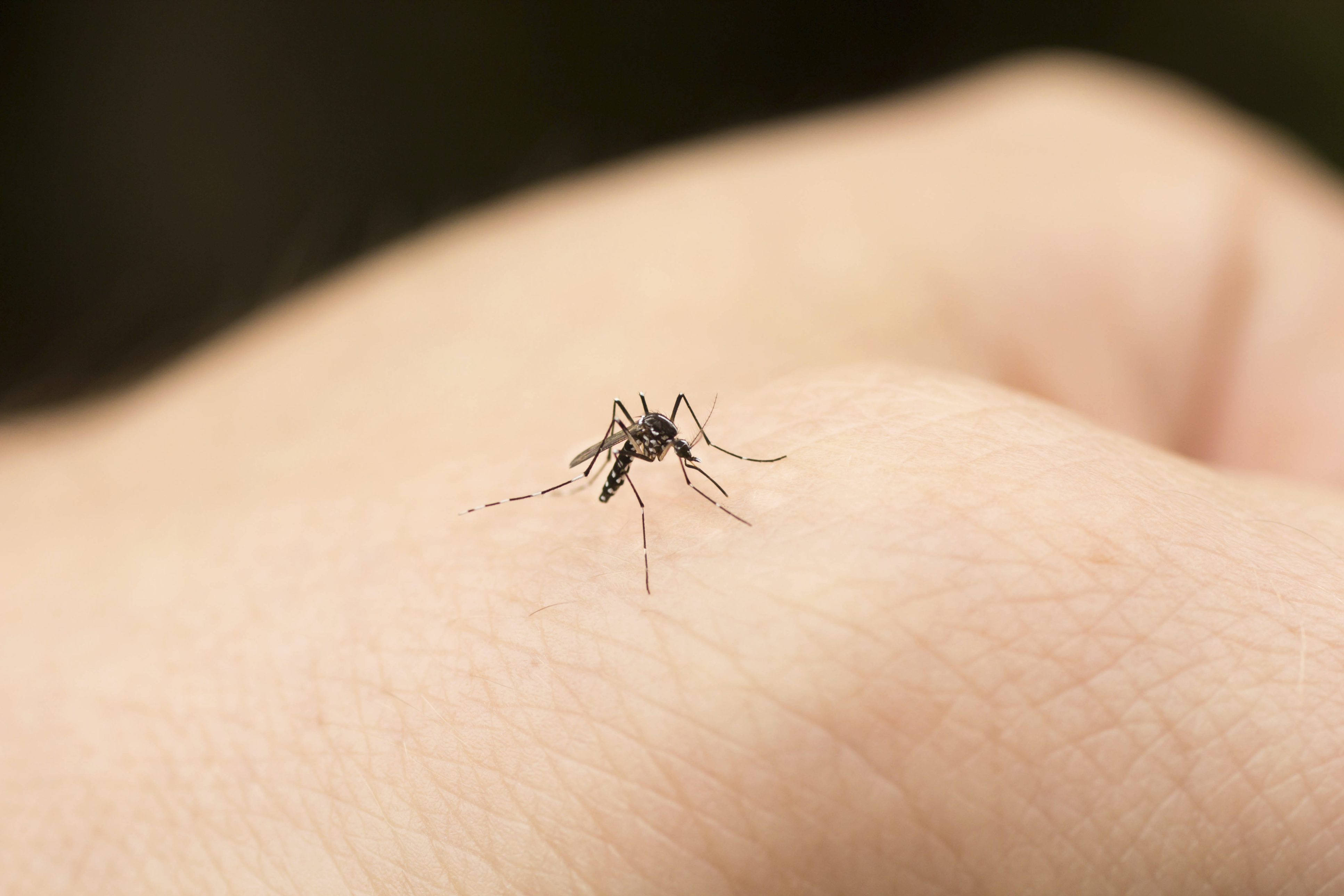Country Lifestyles
Protecting your family against Mosquitos & Zika Virus

Mosquito season is in high gear in Texas and the new founded Zika virus is on the prowl. There have been 46 recorded cases here in Texas to date and that number will certainly keep rising as we get to the end of the summer into early fall. While a lot of folks must work outdoors, many people are on area lakes and rivers fishing, camping and having fun, some working out in the yard or tending the garden and flowers, and kiddos playing outside having their last bit of fun before school starts, we must be aware of the danger and take precautions to avoid this dreadful disease.
The Zika virus can be brought in from other places by individuals on vacation, business trips, visiting family, and can even be transmitted through sexual contact with infected victims. Folks this is serious and we need to pay attention! Dr. Sonya Swiger, AgriLife Extension Entomologist at Stephenville stated, “It’s the global world we live in today, as people travel and return from areas affected by Zika, some will return carrying the virus. When Aedes mosquitoes bite infected people, they acquire the virus.
The mosquito then transmits it to an uninfected person, passing the virus to them. Epidemics are expected as infected people arrive and locally acquired infections occur, as the many media accounts report, women infected by the virus while pregnant are known to have babies with severe neurological defects. Aside from mosquito infections, additional cases may occur from sexual transmission of the disease. So at this point, controlling mosquitoes and protecting yourself from infection are the two key factors in the rigorous defense against this new mosquito-borne virus threat.”
Dr. Mike Merchant, AgriLife Extension urban entomologist at Dallas stated “fighting Zika will be much different than fighting West Nile virus. Aedes mosquitoes infected with Zika are not easily detected, so health officials have to rely on actual human cases to identify hot spots.”
Ok so what can you do to protect you and your family? Well the first line of defense is the 4-D’s
Drain: Empty standing water, thus eliminating mosquito breeding sites.
Dress: Put on long sleeved shirts and pants when going outside.
Defend: Apply mosquito repellent when going outside.
Dusk and Dawn: Avoid outdoor activity during these two most mosquito-active periods
Other steps you can take for protection- make sure your house is sealed where mosquitos can’t enter such as screen doors or windows. Manage your landscape water features where water will drain and disperse properly. If standing water cannot be readily drained then use Mosquito Dunks or pour a little bleach in the water weekly to prevent or kill the larvae. Anything that holds water should be dumped or treated. Breeding areas can include sites such as containers under potted plants and bird baths.
Other trouble areas are old tires, empty cans and bottles, kiddie pools, buckets, boat tarps and even clogged gutters. Use approved mosquito repellents and always read and follow label instructions. Most repellents can be used on children over two months of age, with the exception of those containing oil of lemon eucalyptus, which should not be used on children younger than 3 years old. For babies under two months of age, infant carriers fitted with mosquito netting are recommended. Pregnant and breast-feeding mothers can safely use EPA-approved insect repellents. EPA and the Centers for Disease Control have evaluated scientific reports and conclude mosquito repellents containing DEET, picaridin, oil of lemon eucalyptus, called IR3535, as active ingredients provide reasonably long-lasting protection from mosquito bites. Everyone will need to pitch in and do their part.
Communicate with your neighbors, if they have standing water they are neglecting, tell them to dump it or treat it. Don’t be shy when it comes to protecting you and your families health. For further information on Mosquitos, control, prevention and diseases please come by or contact our office at 940-668-5412 or visit cooke.agrilife.org
Marty Morgan-Cooke County Ag Agent
Country Lifestyles
While We Were Sleeping

By Martha Crump
That old adage, “What you don’t know won’t hurt you.,” may have some basis in truth when applied to minor situations. However, when what you don’t know is presented in the form of a “Trojan Horse” and is what amounts to an incredible attempt to fleece American property rights, it becomes a different story altogether.
To put this unbelievable tale together, we need to step back to Joe Biden’s 2021 Executive Order which pledged commitment to help restore balance on public lands and waters, to create jobs, and to provide a path to align the management of America’s public lands and waters with our nation’s climate, conservation, and clean energy goals.
To read more, pick up a copy of the April issue of NTFR magazine. To subscribe by mail, call 940-872-5922.
Country Lifestyles
Lacey’s Pantry: Strawberry Sorbet

By Lacey Vilhauer
Ingredients:
1 whole lemon, seeded and roughly chopped
2 cups sugar
2 pounds strawberries, hulled
Juice of 1 to 2 lemons
¼ cup water
Directions:
Place the chopped lemon and sugar in a food processor and pulse until combined. Transfer to a large bowl. Puree the strawberries in a food processor and add to the lemon mixture along with juice of one lemon and water. Taste and add more juice as desired.
To read more, pick up a copy of the April issue of NTFR magazine. To subscribe by mail, call 940-872-5922.
Country Lifestyles
A Mountain Out of a Molehill

By Nicholas Waters
As winter plods along – come Spring and gopher mounds – homeowners and farmers find themselves playing a familiar song – fiddling while Rome is burning.
Let’s make a mountain out of a molehill. Those mounds on your lawn and pasture could be moles, but they’re more than likely gophers; Plains Pocket Gophers to be pragmatic – Geomys bursarius to be scientific.
These rodents dig and chew, and the damage they can do goes beyond the mounds we mow over. Iowa State University cited a study in Nebraska showing a 35 percent loss in irrigated alfalfa fields due to the presence of pocket gophers; the number jumped to 46 percent in decreased production of non-irrigated alfalfa fields.
The internet is replete with academic research from coast-to-coast on how to curtail gopher populations, or at least control them. Kansas State University – then called Kansas State Agricultural College – also published a book [Bulletin 152] in February 1908 focused exclusively on the pocket gopher.
To read more, pick up a copy of the April issue of NTFR magazine. To subscribe by mail, call 940-872-5922.
-

 Country Lifestyles1 year ago
Country Lifestyles1 year agoScott & Stacey Schumacher: A Growth Mindset
-

 Equine7 months ago
Equine7 months agoThe Will to Win
-

 Country Lifestyles7 years ago
Country Lifestyles7 years agoStyle Your Profile – What your style cowboy hat says about you and new trends in 2017
-

 Country Lifestyles4 years ago
Country Lifestyles4 years agoAmber Crawford, Breakaway Roper
-

 HOME7 years ago
HOME7 years agoGrazing North Texas – Wilman Lovegrass
-

 Country Lifestyles7 years ago
Country Lifestyles7 years agoDecember 2016 Profile, Rusty Riddle – The Riddle Way
-

 Country Lifestyles8 years ago
Country Lifestyles8 years agoJune 2016 Profile – The man behind the mic: Bob Tallman
-

 Outdoor9 years ago
Outdoor9 years agoButtercup or Primrose?






